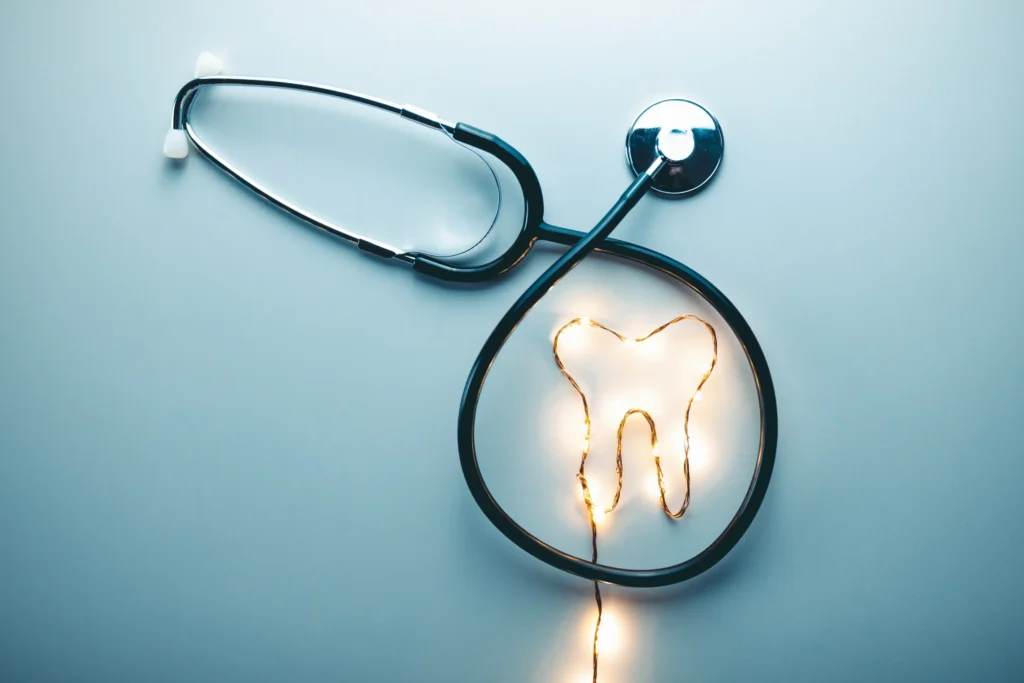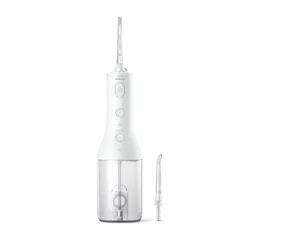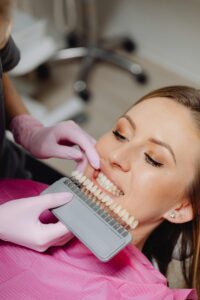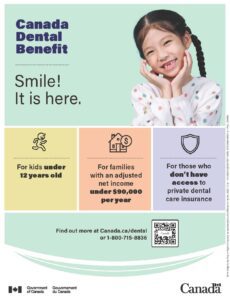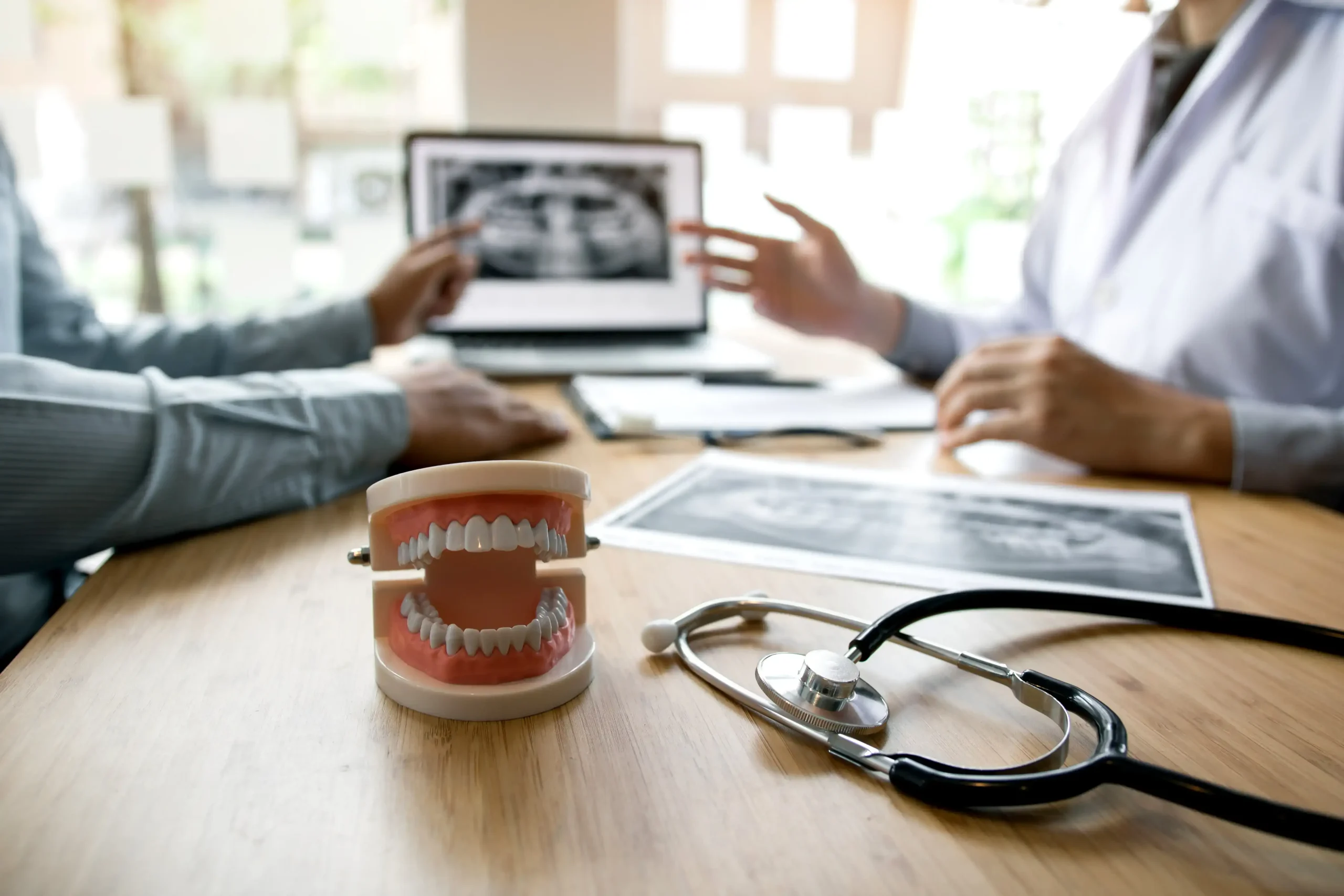Oral hygiene involves keeping the mouth, teeth, and gums clean to prevent disease. This practice includes regular brushing and flossing.
Oral hygiene is crucial for maintaining overall health. Regular brushing and flossing remove plaque, a sticky film of bacteria that can cause cavities and gum disease. Dentists recommend brushing twice daily with fluoride toothpaste and flossing at least once a day.
Regular dental check-ups are also important for early detection of potential issues. Proper oral hygiene can prevent bad breath, tooth decay, and gum disease. It also contributes to overall health, as poor oral health can lead to other serious conditions like heart disease and diabetes. Consistent oral care habits ensure a healthy, bright smile and contribute to long-term well-being.
The Importance Of Oral Hygiene
Oral hygiene is about keeping your mouth clean and healthy. It helps your teeth and gums stay in good shape. Good oral hygiene means brushing, flossing, and visiting the dentist regularly. This habit is essential for everyone, from kids to adults. Let’s explore why oral hygiene is so important.
Preventing Dental Issues
Good oral hygiene can prevent many dental problems. Brushing your teeth twice a day removes plaque. Plaque is a sticky film of bacteria. If plaque stays on your teeth, it can cause tooth decay and gum disease. Here are some key points:
- Tooth Decay: Plaque turns sugars from food into acids. These acids eat away at your tooth enamel, causing cavities.
- Gum Disease: Plaque can also cause gums to become red, swollen, and bleed. This is called gingivitis. If not treated, it can turn into a more serious gum disease called periodontitis.
- Bad Breath: Poor oral hygiene can lead to bad breath. Bacteria in your mouth produce unpleasant odors.
Flossing helps remove food particles and plaque between teeth. This is where your toothbrush can’t reach. Regular dental check-ups are important too. Dentists can spot problems early and give your teeth a deep clean.
| Activity | Frequency |
| Brushing | Twice daily |
| Flossing | Once daily |
| Dental Check-up | Every 6 months |
Impact On Overall Health
Oral hygiene affects more than just your mouth. Poor oral health can impact your whole body. Here are some ways:
- Heart Disease: Bacteria from gum disease can enter your bloodstream. This can cause inflammation and lead to heart disease.
- Diabetes: Gum disease can make it harder to control blood sugar levels. People with diabetes are more likely to have gum disease.
- Respiratory Infections: Bacteria from your mouth can be inhaled into your lungs. This can cause infections like pneumonia.
Oral health is linked to your overall health. Keeping your mouth healthy helps keep your body healthy. Remember these tips:
- Brush and floss daily.
- Eat a balanced diet and limit sugary snacks.
- Visit the dentist regularly for check-ups and cleanings.
Taking care of your oral hygiene is simple but very important. It helps you live a healthier life.
Common Oral Hygiene Practices
Maintaining good oral hygiene is essential for a healthy smile and fresh breath. Common oral hygiene practices help prevent cavities, gum disease, and bad breath. Let’s explore some effective techniques to keep your mouth clean and healthy.
Brushing Techniques
Proper brushing techniques are crucial for removing plaque and food particles. Here are some tips to brush your teeth effectively:
- Use a soft-bristled toothbrush: It protects your gums and tooth enamel.
- Brush twice a day: Do it in the morning and before bed to prevent plaque buildup.
- Brush for two minutes: Ensure you clean all areas of your mouth.
- Use fluoride toothpaste: It strengthens your teeth and prevents cavities.
Follow these steps for a thorough brushing:
- Place your toothbrush at a 45-degree angle to your gums.
- Gently move the brush back and forth in short strokes.
- Brush the outer, inner, and chewing surfaces of your teeth.
- Brush your tongue to remove bacteria and keep your breath fresh.
Flossing Tips
Flossing removes food particles and plaque between teeth where your toothbrush can’t reach. Follow these tips for effective flossing:
- Use about 18 inches of floss: Wind most of it around your middle fingers, leaving an inch or two to work with.
- Hold the floss tightly: Use your thumbs and index fingers to guide it between your teeth.
- Curve the floss: Form a C-shape around each tooth and slide it up and down gently.
- Don’t forget the back teeth: They are just as important as the front ones.
Mouthwash Recommendations
Mouthwash can help reduce bacteria, freshen breath, and protect against cavities. Here are some recommendations for using mouthwash:
- Choose the right mouthwash: Look for one with fluoride to strengthen enamel or one with antibacterial properties to reduce plaque.
- Use the correct amount: Follow the instructions on the bottle, usually around 20 ml.
- Swish for 30 seconds: Ensure the mouthwash reaches all areas of your mouth.
- Avoid eating or drinking: Do so for at least 30 minutes after using mouthwash to let it work effectively.
Incorporating these common oral hygiene practices into your daily routine will help you maintain a healthy mouth and a beautiful smile.
Factors Affecting Oral Health
Maintaining good oral hygiene is crucial for a healthy smile and overall well-being. Several factors affect oral health, impacting everything from the appearance of your teeth to the freshness of your breath. Understanding these factors can help you take better care of your oral hygiene.
Diet And Nutrition
A balanced diet plays a vital role in maintaining healthy teeth and gums. Foods high in sugar and starches contribute to tooth decay. Bacteria in the mouth feed on these substances, producing acids that can erode tooth enamel.
Here are some tips to improve your diet for better oral health:
- Eat more fruits and vegetables. They are high in water and fiber, which help clean teeth.
- Choose dairy products. Milk, cheese, and yogurt provide calcium and phosphates, essential for strong teeth.
- Avoid sugary snacks. Opt for healthier options like nuts or cheese.
- Drink plenty of water. Water helps wash away food particles and keeps saliva levels high.
Certain vitamins and minerals are essential for oral health:
| Nutrient | Benefits | Sources |
| Calcium | Strengthens teeth and bones | Dairy products, leafy greens |
| Vitamin D | Helps absorb calcium | Sunlight, fish, fortified foods |
| Vitamin C | Boosts gum health | Citrus fruits, berries, peppers |
Tobacco Use
Tobacco use is harmful to your oral health. It can cause a range of problems, from stained teeth to serious diseases. Smoking and chewing tobacco both contribute to these issues.
Common oral health issues caused by tobacco use include:
- Stained teeth and bad breath. Tobacco leaves a yellowish tint on teeth and causes persistent bad breath.
- Gum disease. Smoking reduces blood flow to the gums, making infections more likely.
- Tooth loss. Gum disease and decay can lead to teeth falling out.
- Oral cancer. Tobacco use is a major risk factor for cancers of the mouth and throat.
Quitting tobacco can significantly improve your oral health. Here are some benefits:
- Improved breath and taste. Taste and smell recover quickly after quitting.
- Healthier gums. Blood flow improves, reducing gum disease risk.
- Lower cancer risk. The risk of oral cancer decreases over time.
Genetics
Genetics play a crucial role in oral health. Your genetic makeup can influence your risk for certain dental issues. While you can’t change your genes, knowing your family history helps in taking preventive measures.
Genetic factors affecting oral health include:
- Tooth decay susceptibility. Some people have naturally weaker enamel.
- Gum disease risk. Genetics can make you more prone to gum issues.
- Crooked teeth and bite issues. Inherited traits affect tooth alignment.
If you know that dental problems run in your family, consider these steps:
- Regular dental check-ups. Visit your dentist more frequently to catch issues early.
- Good oral hygiene. Brush and floss daily to keep your mouth healthy.
- Specialized care. Consult with a specialist if you have unique dental needs.
Understanding how genetics impact your oral health can help you take proactive steps to maintain a healthy smile.
Signs Of Poor Oral Hygiene
Good oral hygiene is crucial for maintaining a healthy mouth and an overall well-being. Poor oral hygiene can lead to several noticeable symptoms, which may affect your daily life and health. Recognizing the signs of poor oral hygiene early can help you take action to prevent more serious conditions. Here are some key indicators to look out for:
Bad Breath
Persistent bad breath, also known as halitosis, is a common sign of poor oral hygiene. It can be embarrassing and affect your confidence. Here are some causes of bad breath:
- Food particles: Stuck food particles can lead to bacterial growth, causing bad breath.
- Dry mouth: Saliva helps clean your mouth, and a lack of it can cause bad breath.
- Poor dental habits: Not brushing and flossing regularly allows bacteria to thrive.
- Infections: Mouth, nose, or throat infections can contribute to bad breath.
To combat bad breath, follow these tips:
- Brush your teeth at least twice a day.
- Floss daily to remove food particles and plaque.
- Use mouthwash to kill bacteria and freshen your breath.
- Stay hydrated to avoid dry mouth.
Tooth Decay
Tooth decay, or cavities, is another clear sign of poor oral hygiene. It occurs when the enamel, the outer layer of your teeth, gets damaged due to acids produced by bacteria. Signs of tooth decay include:
- Toothache: Pain in the affected tooth.
- Visible holes: Noticeable pits or holes in your teeth.
- Sensitivity: Discomfort when eating or drinking hot, cold, or sweet items.
Preventing tooth decay involves:
- Brushing your teeth with fluoride toothpaste.
- Flossing daily to remove plaque between teeth.
- Limiting sugary snacks and drinks.
- Regular dental check-ups for professional cleaning and examination.
Gum Disease
Gum disease, or periodontal disease, is a serious condition resulting from poor oral hygiene. It can range from mild gingivitis to severe periodontitis. Symptoms of gum disease include:
- Red, swollen gums: Inflammation and tenderness in the gums.
- Bleeding gums: Gums that bleed easily, especially during brushing or flossing.
- Receding gums: Gums that pull away from the teeth, making teeth look longer.
- Loose teeth: Teeth that start to move or become loose.
To reduce the risk of gum disease, follow these practices:
- Brush your teeth twice daily with a soft-bristled brush.
- Floss daily to remove plaque from between your teeth and gums.
- Use an antimicrobial mouthwash to reduce bacteria.
- Visit your dentist regularly for cleanings and check-ups.
Maintaining Oral Hygiene Habits
Maintaining oral hygiene habits is crucial for a healthy and bright smile. Good habits prevent cavities, gum disease, and bad breath. Consistency is key to a healthy mouth. Let’s explore some essential habits to maintain your oral hygiene.
Regular Dental Check-ups
Visiting the dentist regularly keeps your teeth and gums healthy. Dentists can spot issues early and provide professional cleaning. Aim to visit your dentist every six months. Here are some benefits of regular check-ups:
- Early detection of cavities
- Prevention of gum disease
- Professional cleaning removes plaque
- Advice on proper oral care
Check-ups also include X-rays to find hidden problems. Regular visits prevent costly treatments in the future.
| Frequency | Benefits |
| Every 6 months | Prevents cavities and gum disease |
| As needed | Treats existing dental issues |
Proper Brushing Frequency
Brushing your teeth twice daily is essential. Morning and night brushing keep your mouth clean. Use fluoride toothpaste for added protection. Follow these steps for effective brushing:
- Use a soft-bristled toothbrush
- Brush for at least 2 minutes
- Brush all surfaces of your teeth
- Don’t forget your tongue
Brushing removes food particles and prevents plaque buildup. Skipping brushing can lead to cavities and bad breath. Make brushing a fun routine with these tips:
- Play a favorite song for 2 minutes
- Use a timer
- Choose a fun toothbrush
Using The Right Products
Using the right products makes a big difference in oral hygiene. Choose products that suit your needs. Here are some recommendations:
- Toothpaste: Look for fluoride toothpaste to prevent cavities
- Mouthwash: Use an antibacterial mouthwash to reduce plaque
- Floss: Floss daily to remove particles between teeth
- Toothbrush: Replace your toothbrush every 3 months
Product selection depends on individual needs. Consult your dentist for personalized recommendations. Using the right products ensures a comprehensive oral care routine.
Special Oral Hygiene Considerations
Maintaining good oral hygiene is crucial for overall health. Everyone needs to follow basic oral hygiene practices. However, some groups require special considerations. Let’s explore these special oral hygiene considerations.
Oral Care For Children
Children need proper oral care from an early age. It helps in preventing cavities and building healthy habits. Here are some tips for children’s oral hygiene:
- Start cleaning your baby’s gums with a soft, damp cloth even before the first tooth appears.
- Begin using a small, soft-bristled toothbrush when the first tooth emerges.
- Use fluoride toothpaste in an amount no more than a grain of rice for children under three years old.
- For children aged three to six, use a pea-sized amount of fluoride toothpaste.
- Encourage your child to spit out the toothpaste and not swallow it.
- Supervise brushing until your child can handle it alone, usually by age 7 or 8.
Regular dental visits are essential. Dentists can apply fluoride treatments and sealants to protect your child’s teeth.
Below is a table summarizing the key points:
| Age | Toothpaste Amount | Supervision |
| 0-3 years | Grain of rice | Yes |
| 3-6 years | Pea-sized | Yes |
| 6+ years | Regular amount | No |
Oral Health During Pregnancy
Pregnancy brings hormonal changes that can affect oral health. Pregnant women need extra oral care to avoid complications. Here are some tips:
- Brush twice daily with fluoride toothpaste and floss daily.
- Visit your dentist for regular check-ups and cleanings.
- Inform your dentist about your pregnancy.
- Eat a balanced diet and limit sugary snacks and drinks.
- Rinse your mouth with water after morning sickness to remove stomach acids.
Hormonal changes can lead to pregnancy gingivitis, causing swollen and bleeding gums. Regular dental visits can help manage this condition.
Pregnant women should avoid X-rays unless necessary. Always consult with your dentist for any dental treatments during pregnancy.
Caring For Dentures
Denture care is vital for maintaining oral health and the longevity of the dentures. Here are some steps to follow:
- Remove and rinse dentures after eating to remove food particles and debris.
- Brush your dentures daily with a soft-bristled brush and non-abrasive denture cleanser.
- Soak dentures overnight in a denture-cleaning solution to keep them moist and retain their shape.
- Rinse dentures thoroughly before putting them back in your mouth, especially if using a denture-soaking solution.
- Brush your gums, tongue, and the roof of your mouth every morning to remove plaque and stimulate circulation.
- Visit your dentist regularly to check the fit of your dentures and your overall oral health.
Proper denture care can prevent oral sores, infections, and discomfort. Follow these steps to maintain good oral hygiene while using dentures.
Innovations In Oral Hygiene
Maintaining good oral hygiene is crucial for a healthy smile and overall well-being. Recent innovations in oral hygiene have made it easier and more effective to take care of our teeth and gums. These advancements ensure that we can prevent dental issues and maintain a bright smile with minimal effort.
Electric Toothbrushes
Electric toothbrushes have revolutionized the way we clean our teeth. They offer several advantages over traditional toothbrushes:
- Better plaque removal: Electric toothbrushes remove more plaque than manual brushes.
- Ease of use: The rotating or vibrating bristles do most of the work, making brushing easier.
- Built-in timers: Many models come with timers to ensure you brush for the recommended two minutes.
Electric toothbrushes come in two main types:
| Type | Features |
| Rotating | Brush head spins in a circular motion. |
| Vibrating | Brush head vibrates back and forth at high speed. |
Choosing an electric toothbrush with soft bristles and multiple brushing modes can enhance your dental care routine. Some models also connect to apps that guide you on proper brushing techniques, ensuring you cover all areas of your mouth.
Water Flossers
Water flossers, also known as oral irrigators, are devices that use a stream of pulsating water to remove food particles and plaque between teeth and below the gumline. They offer several benefits:
- Gentle on gums: Water flossers are less abrasive than traditional floss.
- Effective cleaning: The water stream can reach areas that floss might miss.
- Easy to use: Ideal for people with braces, implants, or dental bridges.
Water flossers come with different pressure settings and various tips for different needs:
| Tip Type | Use |
| Classic jet tip | Everyday cleaning |
| Orthodontic tip | Braces and orthodontics |
| Plaque seeker tip | Implants and dental work |
Incorporating a water flosser into your daily routine can significantly improve gum health and reduce the risk of gingivitis.
Smart Oral Health Devices
Smart oral health devices integrate technology to provide real-time feedback and personalized care. These devices range from smart toothbrushes to connected water flossers, each offering unique features:
- Real-time feedback: Smart toothbrushes track your brushing habits and offer tips via an app.
- Personalized care: The data collected helps create a customized oral care plan.
- Reminders and goals: Apps can set reminders for brushing and flossing and track your progress.
Some popular smart oral health devices include:
| Device | Features |
| Smart toothbrush | Bluetooth connectivity, brushing analysis |
| Connected water flosser | Track usage, personalized settings |
| Oral health app | Reminders, tips, progress tracking |
Using smart oral health devices ensures that you follow a consistent and effective oral hygiene routine, leading to better dental health and a brighter smile.
Future Of Oral Hygiene
Oral hygiene is essential for a healthy smile and overall well-being. The future of oral hygiene is exciting with many new developments on the horizon. These advancements promise to make dental care easier, more effective, and personalized. Let’s explore the future of oral hygiene through the lens of advancements in dental technology and personalized oral care solutions.
Advancements In Dental Technology
The world of dental technology is evolving rapidly. New tools and techniques are emerging that will transform how we care for our teeth. Here are some key advancements:
- Laser Dentistry: Lasers are now used for various dental procedures. They reduce pain and improve precision.
- 3D Printing: Dentists use 3D printers to create crowns, bridges, and dentures. This technology allows for quick and accurate dental restorations.
- Teledentistry: Virtual consultations are becoming common. Patients can get dental advice from the comfort of their homes.
These advancements are making dental care more efficient and comfortable. Patients benefit from reduced treatment times and less discomfort. Dentists can now offer more precise and effective treatments. With these technologies, the future of dental care looks bright.
Personalized Oral Care Solutions
Personalized oral care is a game-changer. Tailored treatments and products are designed to meet individual needs. Here are some examples:
- Custom-Fit Mouthguards: These are designed for each patient’s mouth, providing better protection and comfort.
- Smart Toothbrushes: These brushes track your brushing habits and provide feedback. They help you improve your oral hygiene routine.
- DNA Testing: Genetic tests can identify your risk for dental diseases. This allows for preventive care tailored to your genetic profile.
Personalized oral care solutions ensure that each person gets the best possible care. This approach considers unique needs and preferences. As a result, patients achieve better oral health outcomes. Personalized solutions are shaping the future of oral hygiene, making it more effective and enjoyable.
Frequently Asked Questions
What Is Proper Oral Hygiene?
Proper oral hygiene involves brushing teeth twice daily, flossing daily, and using mouthwash. Regular dental check-ups are essential. Avoid sugary foods and drinks.
What Are 10 Things To Keep Your Teeth Healthy?
Brush twice daily with fluoride toothpaste. Floss daily. Limit sugary foods and drinks. Visit your dentist regularly. Use mouthwash. Drink plenty of water. Avoid tobacco products. Eat a balanced diet. Chew sugarless gum. Replace your toothbrush every three months.
What Is The Golden Rule For Oral Hygiene?
The golden rule for oral hygiene is to brush and floss your teeth daily. Regular dental check-ups are essential.
What Causes Poor Oral Hygiene?
Poor oral hygiene is caused by irregular brushing, not flossing, consuming sugary foods, and neglecting dental check-ups. Smoking and alcohol also contribute.
Conclusion
Prioritizing oral hygiene leads to a healthier and more confident smile. Regular brushing, flossing, and dental check-ups are essential. Adopting good habits can prevent many dental issues. Take care of your teeth, and they will take care of you. Remember, a bright smile reflects a healthy lifestyle.
